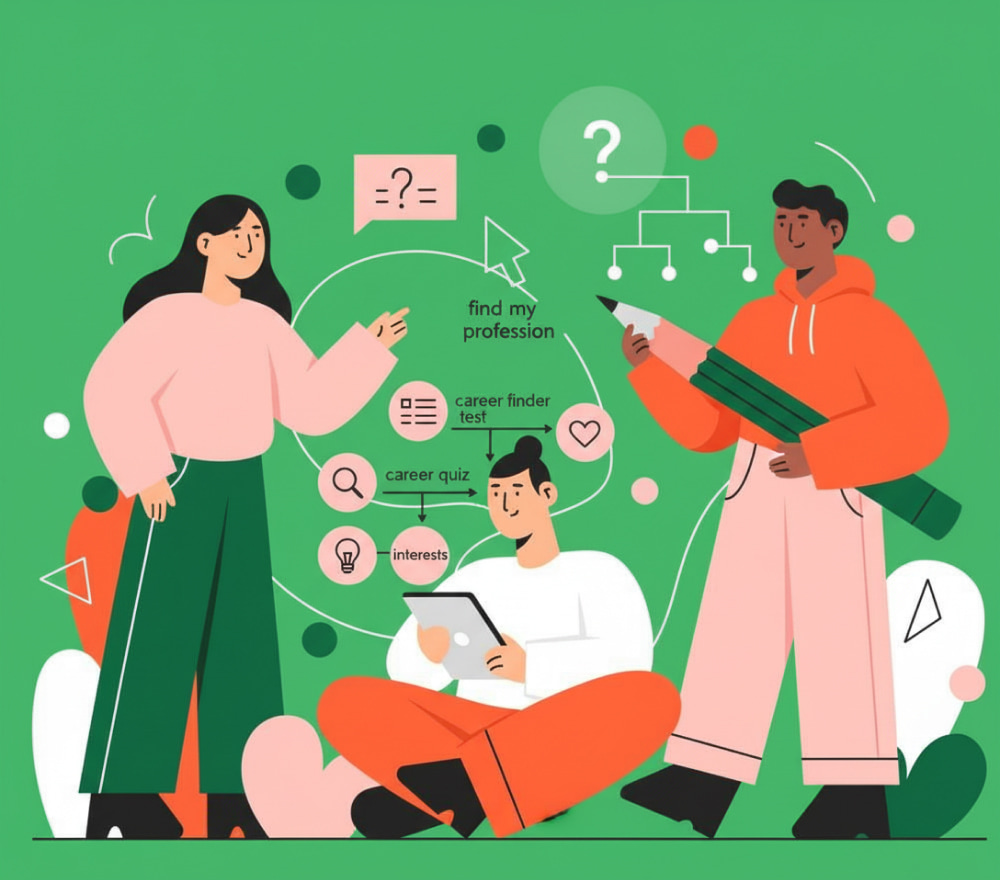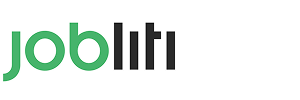How Career Discovery Quizzes Guide Smarter, Happier Work Choices

Take Quiz to Find the Right Career for You
Start the Test →Understanding Modern Career Discovery Quizzes
Making a confident career decision requires more than instinct or chance; it demands structured self-knowledge, realistic labor-market awareness, and a clear understanding of personal constraints. Digital assessments synthesize these factors through psychometrics, interest inventories, and aptitude indicators, translating complex inputs into approachable guidance. When designed correctly, these experiences feel conversational rather than clinical, and they balance introspection with practical suggestions you can act on immediately. In a landscape crammed with options, a well-crafted assessment can cut through noise, spotlight authentic strengths, and reduce the anxiety of choice overload.
Rather than delivering rigid prescriptions, today’s tools emphasize pattern recognition, clarity, and incremental decision-making aligned with your stage of life and goals. Among modern tools designed for this purpose, the find career quiz delivers an approachable entry point for exploration, keeping language friendly while still capturing reliable signals. You answer carefully sequenced prompts that probe your motivations, preferred work styles, and learning patterns, and the system correlates your responses with role families, work environments, and training routes.
Because career change is rarely linear, useful assessments expand beyond one-time results to recommend experiments, portfolios, and small tests that lower risk. In practice, a thoughtfully constructed career finder quiz can also spotlight overlooked possibilities and surface transferable strengths you might not have noticed. This blend of insight and practicality helps you transition from vague ideas to a short list of viable paths, setting the stage for research, networking, and skill building.
How These Quizzes Work Under the Hood
High-quality career assessments rely on validated models like Holland Codes, Big Five personality markers, and skills taxonomies from industry frameworks. The experience starts with clear scoping, ensuring questions target interests, values, constraints, and capabilities without repeating the same concept in different words. Behind the scenes, scoring logic weighs your answers against occupation clusters, demand trends, and training requirements, producing recommendations that feel both personal and grounded in data. The best tools also explain trade-offs, so you understand why certain roles rank higher and what gaps you may need to close.
When assessments incorporate situational judgment items and preference ranking, they extract richer information with fewer questions. In many cases, a structured find my career path quiz will include branching logic that adapts to your responses, maintaining momentum while reducing fatigue. By the end, you receive a ranked list plus rationales that map your strengths and preferences to specific role attributes.
Interpretable outputs build trust, and transparency around the methodology prevents magical thinking. For example, a calibrated job finder quiz will distinguish between core capabilities and stretch opportunities, noting how targeted learning might unlock new options. You should see clear next steps—courses, certifications, projects, and networking ideas—so insight quickly becomes progress.
Key Benefits You Can Expect
People often underestimate the cost of unfocused searching: wasted applications, generic resumes, and low interview yield. A targeted assessment compresses the discovery cycle by reducing choices to a curated set, which immediately improves the quality of research, outreach, and preparation. Clarity builds momentum, and momentum builds confidence—especially helpful if you feel overwhelmed, returning to work, or pivoting industries. The right tool acts like a coach, nudging you to validate assumptions with small, low-risk experiments rather than sweeping leaps.
Beyond initial direction, practical recommendations matter: prototype tasks, informational interviews, micro-credentials, and job-shadowing ideas. By connecting insights to real-world actions, a thoughtful find your career quiz helps you test-fit roles before fully committing, saving time and money. Over time, this approach compounds—each micro-test refines your map, revealing where you excel and where you need support.
Finally, robust guidance fosters better conversations with managers, mentors, and career services professionals. When you arrive with a focused narrative and evidence-backed preferences, people can help you faster and more meaningfully. That collaboration accelerates your transition from exploration to execution.
Quiz Types, Time, and Outputs at a Glance
Assessment ecosystems include lightweight screeners, in-depth diagnostics, and niche tools for specific fields. Choosing the right fit depends on your timeline, tolerance for detail, and whether you seek breadth or depth. Short formats are great for quick orientation, while comprehensive versions connect personality patterns, values, and skills to role families and growth paths. You’ll also want to consider how each tool explains results: concise summaries are convenient, but detailed reports with examples and action steps tend to drive superior outcomes.
Before selecting a platform, scan for clarity, methodology notes, and realistic next steps. It’s also helpful to seek options that translate insights into resume language and interview talking points. For people craving immediate direction, a conversational quiz find out what job i should do can supply a fast shortlist and simple experiments to validate those options. Use the snapshot below to compare common formats and decide what aligns with your needs.
| Quiz Type | Time to Complete | Best For | Output Provided |
|---|---|---|---|
| Interests-Based | 5–10 minutes | Quick orientation | Top role clusters + brief notes |
| Personality-Linked | 10–20 minutes | Workstyle alignment | Traits, environments, communication tips |
| Skills-Focused | 15–25 minutes | Upskilling roadmaps | Skill gaps + learning paths |
| Values-Driven | 10–15 minutes | Meaningful work filters | Industry fit + culture cues |
As you compare, notice whether examples feel specific, whether recommendations include learning routes, and whether the tone is encouraging without overpromising. The right blend of speed, depth, and clarity keeps motivation high and leads to better decisions.
Getting Accurate Results: Best Practices Before You Start
Accuracy begins with mindset: treat the assessment as a mirror, not a marketing tool. Answer for who you are today, not who you wish you were, and resist tailoring responses to match a preconceived outcome. Set aside a quiet block of time, avoid multitasking, and plan to reflect on a few recent projects so examples come to mind easily. If a question feels ambiguous, choose the option that aligns with your natural default rather than your trained behavior at work.
Consistency also matters, especially across similar prompts that probe preferences in different contexts. For deeper self-knowledge, a reflective quiz find your career can encourage you to articulate why certain tasks energize you while others drain you, which improves how you interpret recommendations. After finishing, take notes on themes that surprised you and patterns that confirmed your hunches.
Keep friction low by choosing accessible tools that minimize barriers. For budget-conscious explorers, a well-built find my career quiz free can deliver meaningful direction without requiring a subscription, making it easier to start immediately. Store your results, highlight recurring language, and use those phrases to refine your resume and outreach messages.
Turning Insights Into an Actionable Plan
Insight without execution stalls progress, so convert recommendations into a 30–60–90 day plan. Begin with small experiments—two micro-courses, one project sample, and three conversations with practitioners—and evaluate what you learn along the way. Track energy, difficulty, and satisfaction after each activity, then adjust your roadmap to double down on what works. If a role looks promising, expand experiments with volunteer projects, hackathons, or shadowing to test reality under authentic constraints.
When clarity is still forming, a practical find perfect career quiz can narrow choices to a manageable short list that you can validate with targeted actions. Translate each suggested path into tangible steps: skills to acquire, tools to master, and metrics to demonstrate in a portfolio.
After narrowing to two or three options, deepen your due diligence and align each path with your lifestyle and financial goals. For continued refinement, an adaptive find my career quiz will surface nuanced differences between similar tracks, helping you choose where to invest effort next. Use that specificity to craft tailored resumes and value-forward cover letters that signal fit.
FAQ: Practical Answers to Common Questions
How reliable are these quizzes for real-world decisions?
Reliability improves when the assessment uses validated frameworks, transparent scoring, and clear rationales. Treat results as hypotheses to test, not final verdicts, and combine them with informational interviews and small projects. The strongest signals emerge when your preferences, strengths, and market demand align consistently across multiple sources.
Can I use a free quiz and still get quality insights?
Yes, free tools can be valuable when they avoid generic outputs and provide concrete next steps. If you prefer no-cost options with practical guidance, a transparent career finder quiz free may deliver enough clarity to map initial experiments and learning paths. Always verify recommendations by talking with professionals and sampling real tasks.
How should I interpret conflicting results from different assessments?
Conflicts often mean you’re at an inflection point or answering aspirationally in one tool and realistically in another. Look for common threads in work context, problem types, and collaboration style, then run small tests to see which direction sustains energy and performance. Over a few weeks, patterns will crystallize and contradictions will fade.
Will a quiz help me switch industries or roles?
Absolutely, especially if it highlights transferable skills and outlines bridging steps like certifications, volunteer projects, or apprenticeships. Make a shortlist, then validate by tackling a real deliverable in each new path, because concrete experience builds credibility faster than theory. With consistent iteration, your narrative will strengthen and doors will open.
What if I want a tool that inspires as well as informs?
Motivation matters, and some platforms blend rigorous methodology with uplifting storytelling and case studies. For a boost in momentum alongside clarity, an engaging find your dream job quiz can pair practical recommendations with encouraging examples that feel achievable. Use that energy to take immediate action and build proof quickly.
